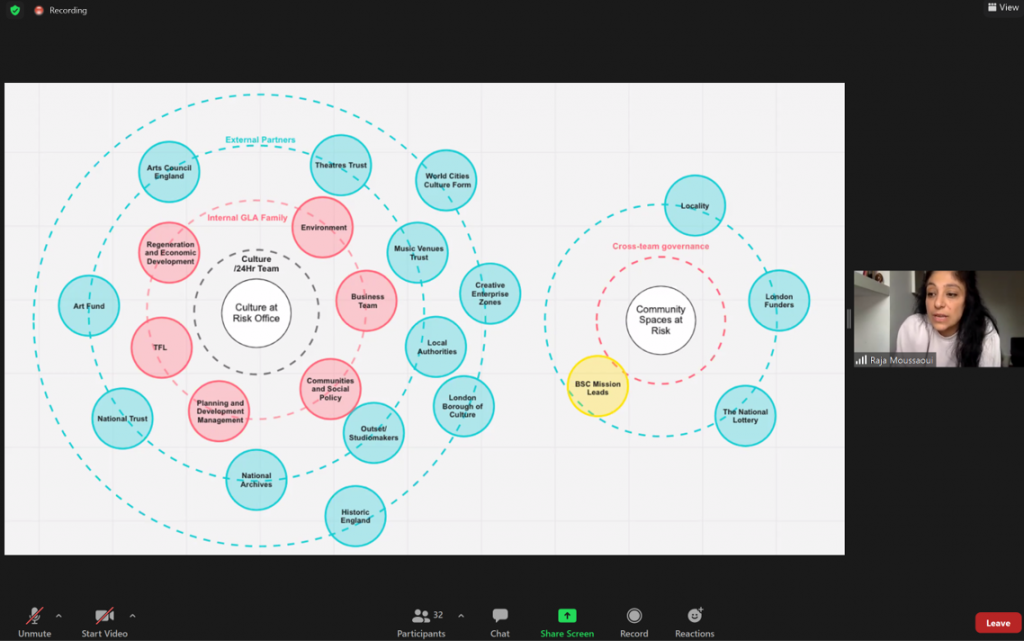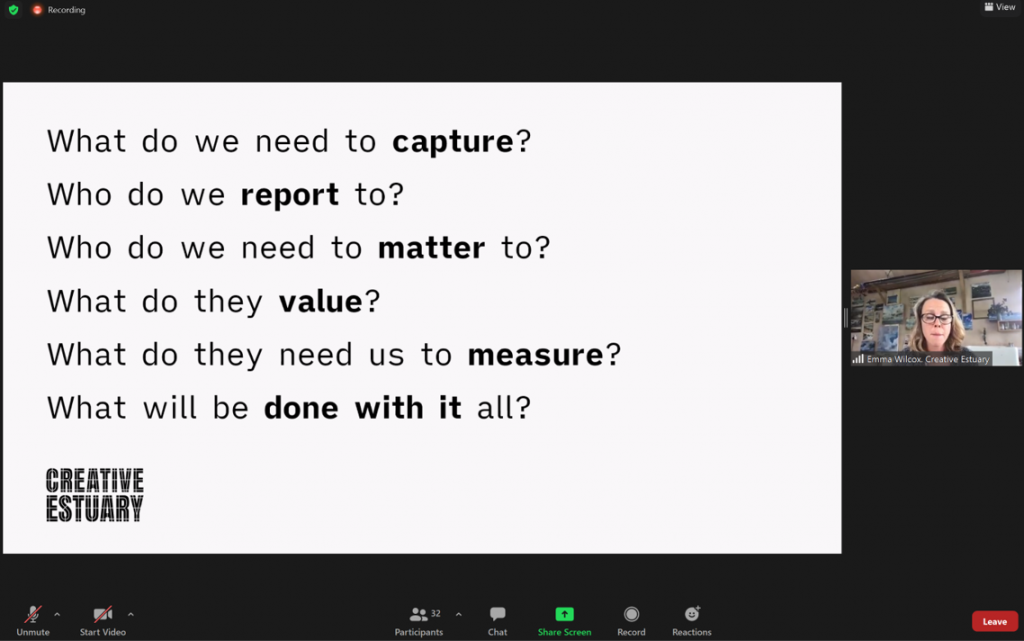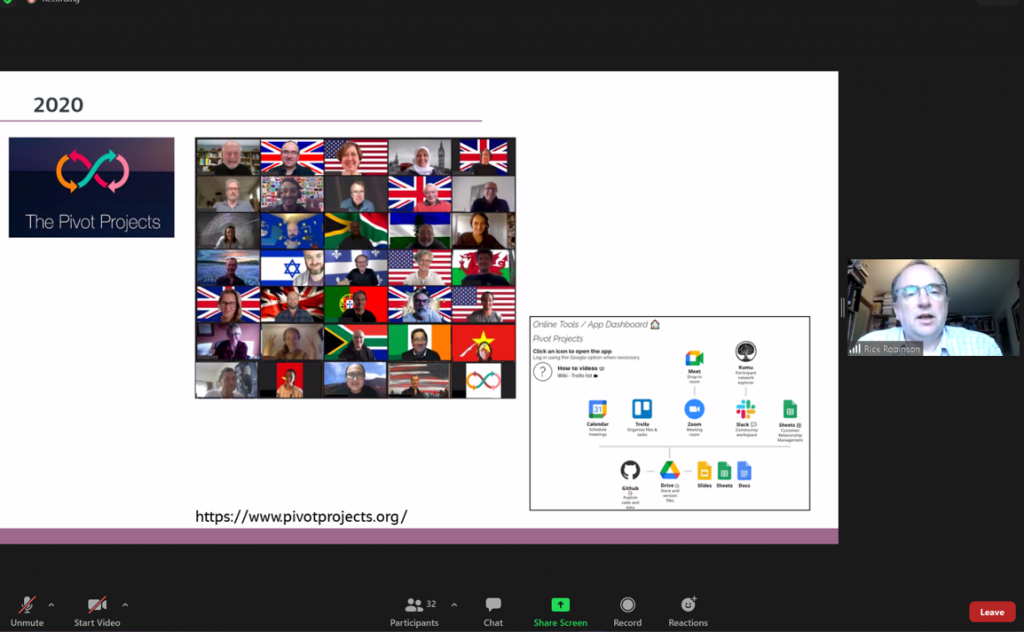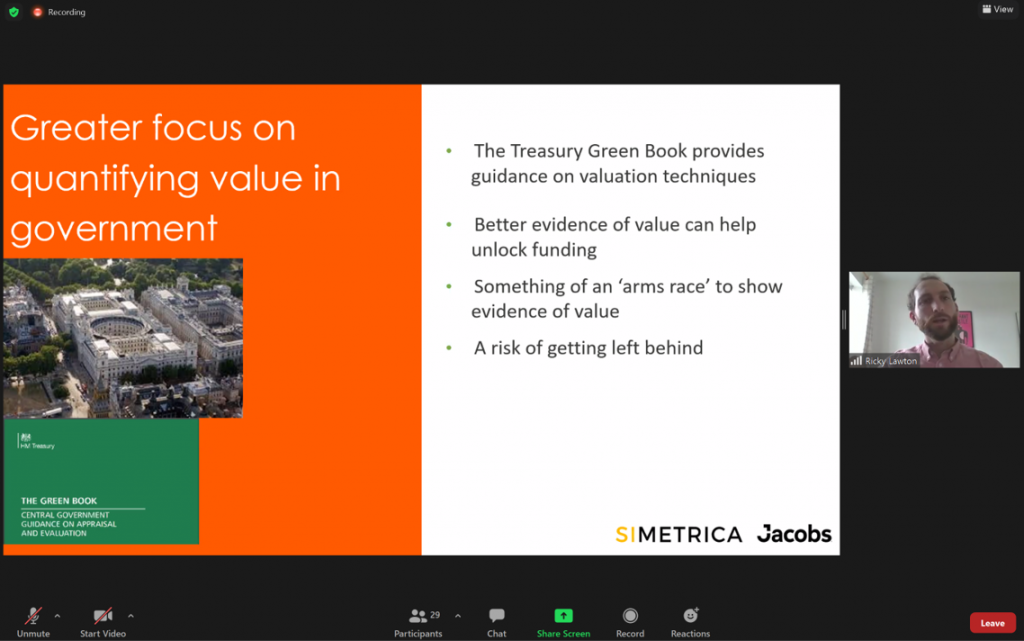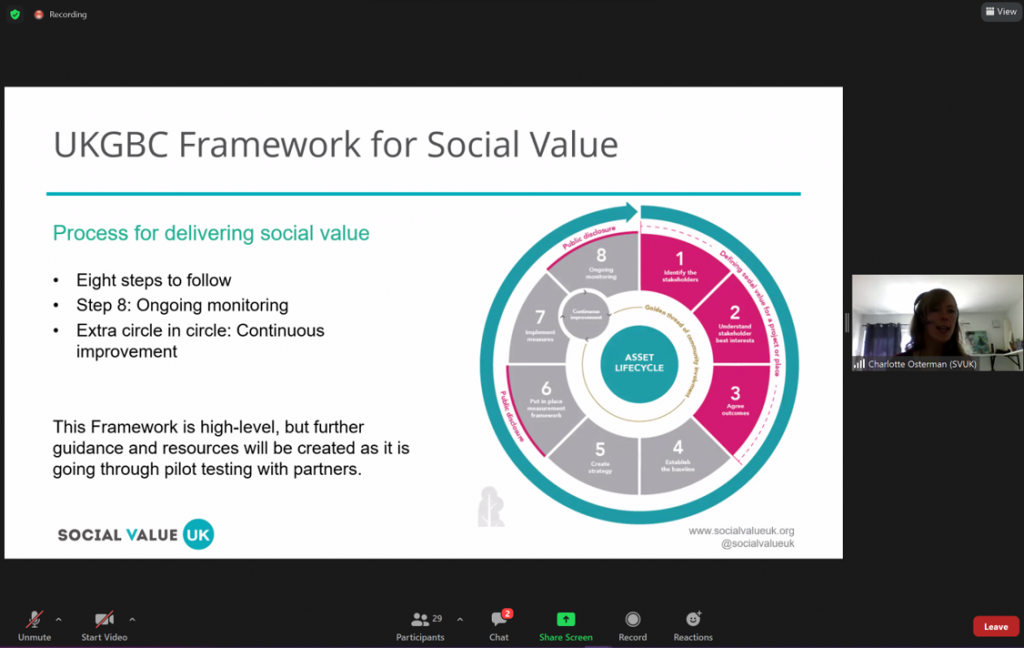How to measure the social value of culture in places – ULI UK Urban Art Forum explores
On Thursday 20 May, the ULI UK Urban Art Forum held an event that focused on “Social and Cultural Resiliency” by bringing together leading data, cultural and policy experts to share their challenges and findings in measuring the social value of culture in urban developments. The following day, World Day for Cultural Diversity for Dialogue and Development
21 May convened countries to discuss the global role of arts & culture in delivering social resiliency and even raised the potential addition of a dedicated goal for the SDGs.
The symposium explored the different methods, toolkits and technologies that are currently gathering social value measurements and correlated them to the issues and needs of measuring cultural impact. The discussion revolved around the question: How can places reengage with people again post lockdown or deprivation, and demonstrate the uptake of culture after those times as positive indicators of their social value and overall wellness?
The panelists were:
- Charlotte Osterman, Private Sector Lead, Social Value UK
- Ricky Lawton, Director of Research and Analysis, Simetrica-Jacobs
- Dr. Rick Robinson, Co-Founder, Co-Lead of Pivot Projects, Director of Smart Cities, Jacobs
- Emma Wilcox, Project Director, Creative Estuary
- Raja Moussaoui, Senior Policy Officer, Culture at Risk, Cultural Infrastructure and Public Realm Unit at Greater London Authority
The session was opened by Programming Chair for Urban Art Forum, Fabienne Nicholas, Mayors Office Design Advocate Council, and moderated by myself, Chair of Urban Art Forum.
Charlotte Osterman walked through how Social Value UK uses a methodology that leads clients toolkits while teaching them how to keep the question at the front of their minds. Ricky Lawton discussed the approaches used with Arts Council England and The Department for Digital, Culture, Media & Sport (DCMS) about benefit transfer and the consequential approach. Dr Rick Robinson shared his work with the Pivot Project that brough together over 100 volunteers from 35 countries to gather systems models that direct an AI product called SparkBeyond, which aggregates intel from diverse sources. Emma Wilcox spoke of Creative Estuary’s role to leave a legacy of tools and shared learning while also delivering catalyst projects for a vast region. Raja Moussaoui spoke about the numerous ways the GLA is working to align partners, assist culture at risk, and assist between planning and culture.
Within the cultural sector we know that culture is a great opportunity and a worthwhile investment. But it can be hard to measure its impact in terms of ROI and communicate it to the treasury and private funders. However, this group was able to demonstrate how wellness can be measured. As there are decades of data from Arts Council England and DCMS grant-related evaluations – how can we access them to generate robust metrics? Many measurement efforts are also pursued in an ‘arms-race-like fashion’ and there are many opportunities to join these efforts, skillsets and embark on investor-facing datasets and narratives.
Some of the key takeaways from the event were:
- Use the tools of economics to empower the arts
- Managing social value is all about the process
- Verify the robustness of the results from measuring impact
- Establish solid partnerships for positive outcomes
- Understand the value of collaboration
- Find allies in the private sector
- Consider the exchange commodity as part of sustainability demands and capture free transactions
- Ensure no one is left behind (keep those asking, gathering and analysing data as diverse as the place’s constituents)
There were numerous insights and learning lessons shared across all workshop participants. This is the power of ULI as a membership organisation in gathering expertise to understand how we make a better built environment sector and better societies. The panel provided evidence that social value impact gives way to greater economic success. There is appropriate growth that can deliver ROI for people and commerce. The Urban Art Forum will be following up on how we can assist in research that works towards these goals.
At Futurecity, we see culture as a key component of value in bringing collaboration, taking considered risk, engaging ambition and happiness and delivering mutually-beneficial communities and districts. We look forward to working with these partners and networks on new ways to capture and communicate value(s).
-Sherry Dobbin, Partner (Managing & Cultural Director)
- In case you missed it, ULI Members watch the recording of the event here. Also watch it here
- To get involved in the ULI UK Urban Art Forum and participate in future events visit here
- Sign up for the ULI UK Annual Conference 2021 here
- Learn more about the London Festival of Ideas – your vision for strong communities here
- Click on the links below for more Futurecity projects on: Thought Leadership and Advocacy

